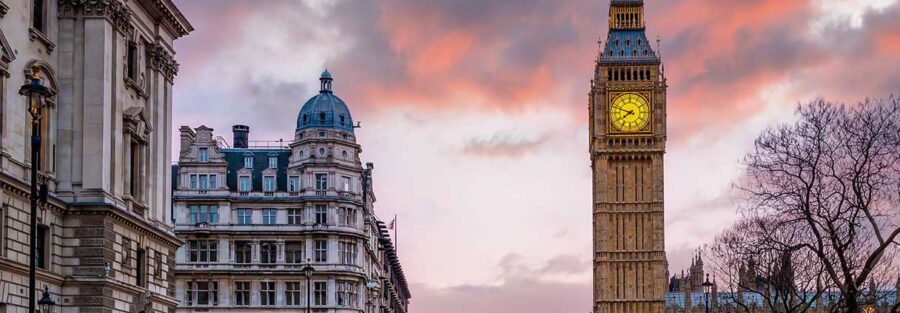Navigating the UK: A Step-by-Step Guide on How to Visit
Visiting the UK involves several steps, including checking visa requirements, planning your trip, and being prepared for the customs and immigration process. Here’s a step-by-step guide to help you plan your visit:
1. Check Visa Requirements
Visa-Free Entry: Citizens of some countries, such as the US, Canada, Australia, and EU member states, may not need a visa for short visits (up to 6 months) for tourism, business, or family visits.
Visa Required: If you’re from a country that requires a visa, you’ll need to apply for a Standard Visitor Visa.
Apply online on the UK government website.
Provide necessary documents (passport, travel plans, financial proof, etc.).
Attend a visa appointment, if required, at your local visa application center.
Fees: The standard visitor visa costs around £100 for stays of up to 6 months.
Check the UK government’s visa checker to see if you need one.
2. Prepare Required Documents
Whether or not you need a visa, UK immigration will require certain documents:
Valid Passport: Your passport must be valid for the duration of your stay.
Proof of Accommodation: A hotel booking, an invitation from a family member, or a rental agreement.
Travel Itinerary: Provide your flight details and a rough outline of your trip (tourist attractions, events, etc.).
Proof of Financial Means: Show you have enough funds to cover your stay (bank statements, credit card statements, etc.).
Return Ticket: Proof that you will leave the UK at the end of your visit.
3. Plan Your Flights
Book a round-trip ticket or a multi-destination flight, depending on your plans.
Major international airports include London Heathrow, London Gatwick, Manchester, Birmingham, and Edinburgh.
4. Accommodation
Book your accommodation in advance. Options range from hotels, Airbnbs, and hostels to rental apartments. Popular areas for tourists include London, Edinburgh, and major cities like Manchester and Liverpool.
5. Health and Travel Insurance
Health insurance is recommended for international travelers. While the UK’s National Health Service (NHS) provides free emergency care, you will be charged for non-emergency treatment unless you’re from an EU country with a European Health Insurance Card (EHIC) or a country with reciprocal healthcare agreements.
6. COVID-19 and Health Guidelines
Check the UK’s current COVID-19 travel guidelines, including testing or vaccination requirements, quarantine rules (if applicable), or any health declarations that need to be completed before travel.
7. Customs and Immigration
Upon arrival in the UK, you’ll go through:
Passport Control: Provide your passport and travel documents.
Customs: Declare any goods you’re bringing into the country, especially if you exceed personal allowances (alcohol, tobacco, etc.).
Certain items, such as food and plant products, may have restrictions, so check what you can bring to the UK here.
8. Getting Around in the UK
Public Transport: The UK has an extensive public transport network, including trains, buses, and the London Underground (Tube).
Oyster Card for London: A convenient way to pay for travel on buses, trains, and the Tube.
Train Services: Trains connect major cities across the country. Use services like National Rail for travel between cities.
Driving: If you plan to drive, check if you need an International Driving Permit (IDP). The UK drives on the left-hand side of the road.
9. Tourist Destinations
London: Buckingham Palace, the Tower of London, the British Museum, the London Eye, etc.
Edinburgh: Edinburgh Castle, Holyrood Palace, Arthur’s Seat.
Countryside: Explore the Lake District, Scottish Highlands, or Cotswolds.
Cultural Landmarks: Stonehenge, Oxford and Cambridge universities, and historic castles across England and Scotland.
10. Currency
The currency in the UK is the British Pound Sterling (GBP). Major credit and debit cards are widely accepted, but it’s a good idea to have some cash on hand for small purchases or in rural areas.
11. Time Zone
The UK operates on Greenwich Mean Time (GMT) or British Summer Time (BST) during daylight saving.
By following these steps, you’ll be well-prepared for your trip to the UK. Let me know if you need more information on any part!
Need More Information on UK Visa Consultants in Ludhiana? Let Us Help!
Are you planning to pursue your studies in the UK? If so, it’s essential to have the right guidance and assistance throughout the visa application process. That’s where UK study visa consultants Ludhiana come into play – they can help ensure a smooth and successful visa application experience.
Here at JVT Immigration, we understand the importance of getting the right information and support when applying for a UK study visa. Our team of experienced UK visa consultants in Ludhiana is here to provide you with all the assistance you need to navigate the sometimes complex visa application process.
Whether you have questions about the visa requirements, need help with completing the application forms, or want advice on gathering the necessary documents, our consultants are here to help. We have in-depth knowledge of the UK visa application process and can guide you through each step to ensure a successful outcome.
Additionally, our team is always available to answer any questions or concerns you may have along the way. We understand that applying for a UK study visa can be a stressful and overwhelming experience, which is why we are here to offer our support and expertise.
So, if you’re in need of more information on UK visa consultants in Ludhiana, don’t hesitate to reach out to us. Our team is dedicated to helping you achieve your goal of studying in the UK, and we will do everything we can to make the visa application process as smooth and stress-free as possible.
Contact us today to learn more about our services and how we can assist you with your UK study visa application. Let us be your trusted partner in making your dreams of studying in the UK a reality!


